This post is also available in: Español (Spanish) Kreyòl (Haitian Creole)
When parents struggle, it is difficult for children to thrive. But when families and communities do well, children have a better chance at success. This philosophy drives programming for families at Valley Settlement in the Roaring Fork Valley of Colorado. That’s why the programs and services they offer focus on serving two generations – both children and parents. From mobile preschools to adult education and peer mentoring, Valley Settlement built their programs on the recognition of the tight-knit nature of many Latino families the organization serves, and programs often include grandparents, aunts, uncles, cousins and more.
The organization embodies the W.K. Kellogg Foundation’s philosophy that communities inherently know what they need and know how to solve their own problems. This is reflected in the heart of all the organization does – beginning with listening.
Before launching in 2011, they conducted more than 300 interviews with immigrant families over nine months – families that many organizations describe as “hard to reach.” They sent out bilingual and bicultural interviewers and held these conversations – often over coffee tables or kitchen tables – and began to form rich relationships and glean deep learnings.
“We are an organization that will always listen first,” said Kenia Pinela, director of programs and innovation at Valley Settlement. “We know that listening to families allows us to respond to their needs and build upon their strengths to make a real difference together in the community.”
Through this listening tour, Valley Settlement leaders heard many strengths and many needs, but one of the most glaring facts was that fewer than 1% of these families’ preschool-age children were enrolled in preschool. In their home countries, many of the parents interviewed had degrees and held professional jobs, but in the U.S., those credentials and experiences were not fully recognized. Parents reported being disconnected from schools, services and jobs.
The initial programs created by Valley Settlement were designed to address these specific needs.
Taking preschool to neighborhood streets
Take El Busesito Preschool, for example. In this program, a fleet of “Little Buses” travel to neighborhoods to provide bilingual preschool education to children who would otherwise have no access to preschool. Equipped with a strong foundation of social-emotional learning, these students now arrive at kindergarten each year ready to learn alongside their peers. Parents are engaged as partners in their child’s education through monthly volunteering, home visits and four Family Nights each year.
“The good that [El Busesito Preschool] did for my daughter also came to our home, because the teachers gave us homework to bring home and activities that we could do with [my children]…and that also helped us to understand what it is she is learning and they are fun ways for both of us to learn,” said an El Busesito Preschool parent.
Valley Settlement’s Executive Director Maria Tarajano Rodman describes the mobile preschool program as not only one of early childhood education, but also as one of leadership development and family pride. She described a 3-year-old girl, Gloria. One day, in the early part of her leadership of Valley Settlement, Tarajano Rodman visited one of the buses to observe and learn. Ten minutes before the doors were to open, she heard a little voice saying, “Maestra, Maestra, I’m coming.” Gloria was walking 10 to 20 paces ahead of her grandmother to get to the bus.
They let her in early, and Gloria, recognizing that Tarajano Rodman was a visitor, proceeded to show her where to hang up the coats and lunch boxes, move her to the area where they began their first activity of the day and talk her through the daily schedule. Gloria talked joyfully until her grandmother finally caught up to her and reported that Dad would be picking Gloria up that day. For many families, who often work multiple jobs and have complex schedules, getting children to and from preschool is a family affair. The children see the families’ commitment to their education and learn to value it themselves. “I could see that day that Gloria knows she is seen and cared for,” Tarajano Rodman said. “She became that confident leader because people around her saw that in her and celebrated it.”
This pride is also seen at the graduation ceremony that happens for the 5-year-olds each year who are now prepared for Kindergarten. Tarajano Rodman said, “We graduate 50 kiddos each year, but 300 people come to that ceremony. So they are bringing an average of six attendees each.”
She explained that these families have brought almost nothing personal from their home countries. Tarajano Rodman herself has only one picture of her mother from Cuba. So the preschool graduation certificates are framed and hung in the families’ homes with pride – a tangible sign of the new life they are building.
At the graduation ceremonies, parents often take hard-to-get time off from work in order to attend. It is a common sight to see fathers straighten little boys’ bowties with one hand and hold food in the other that the family has prepared to share with the community. These details paint a picture of parents who have sacrificed so much – everything they’ve known in terms of community and culture – and come to a new country with hope and resiliency (but also much fear and trepidation) in order to create opportunities for their children and families.
Programs for parents
In another program, Valley Settlement works to end social isolation and disconnection from schools and services through parent mentors. Originally designed to help connect parents with the school system, the program currently enlists 45-60 volunteers a year to provide classroom support and engage with teachers and students. These parents, many of whom speak Spanish as their first language, volunteer in classrooms to assist teachers who are not bilingual. The volunteers commit to providing in-classroom support to elementary school students and engage in weekly trainings to encourage personal and professional growth. Most importantly, they strengthen the connection between Latina/o families and the schools, creating a more welcoming environment for all.
“Being a Parent Mentor is constant emotional learning,” said Marlena, a parent mentor. “It is so exciting to socialize with other people and interact with my environment in a healthy way. Volunteering helps me if I’m sad, and it’s a great way to deal with my feelings. Being a parent mentor allows me to spend a little time focusing on the children and learning from them. It allows me to see life in new ways.”
This parent mentor program was originally started by Palenque LSNA, a group in Chicago where Black, Brown, Indigenous and Immigrant communities and allies take care of one another and take strategic action for systemic change. Valley Settlement learned this program from Palenque LSNA and took it back to Colorado and adapted it for their own context.
Other programs at Valley Settlement designed specifically to support parents are Alma, which provides in-home support to mothers experiencing perinatal depression along with Lifelong Learning where adult learners take courses in English, Spanish literacy, computer skills, math and more. Parents report that they are better able to help their children with homework and that they feel more involved in the community.
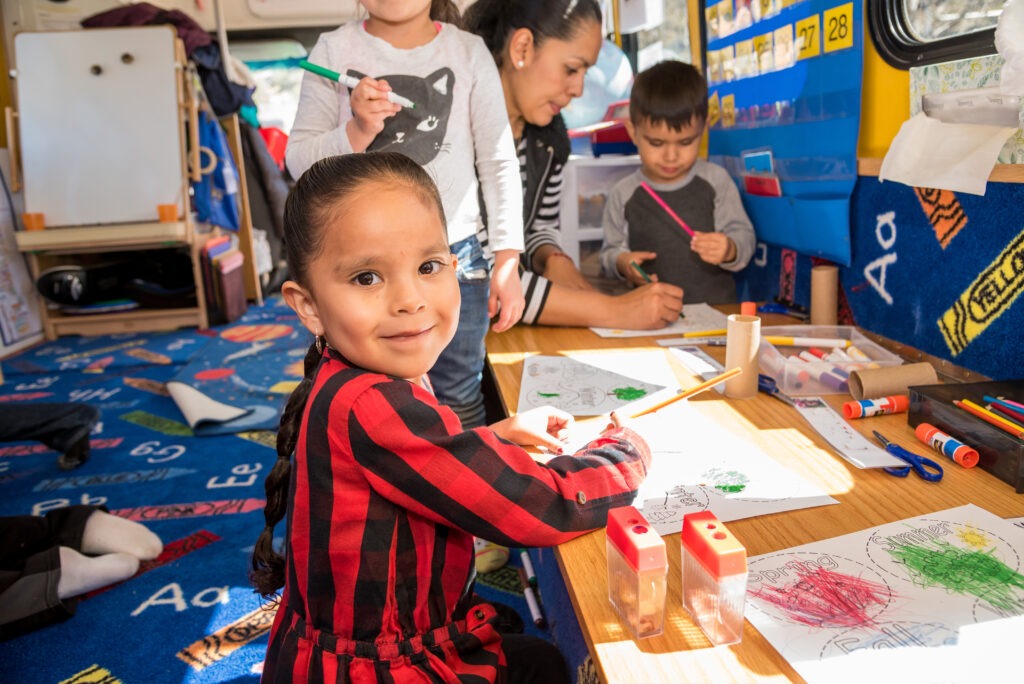
From listening to co-creating to building impact
Because listening and co-creating with the community is such a part of the fabric of how Valley Settlement does its work, they did not stop with the first 300 interviews. They build time for feedback, reflection and evaluation into every program. And, in 2021, the organization embarked on a second listening tour, interviewing hundreds of Latino immigrant families in the community, to hear directly from them about their needs, dreams, hopes and fears.
Pinela explained that they approached these interviews with an asset-based approach rather than simply looking for deficits and needs. What they found was that the immigrant families they serve come with a robust set of skills and strengths. Because these are families who have chosen to leave places of extreme violence and poverty, resiliency and commitment to family and community are always at the center of their lives. They also largely bring a sense of integrity that comes from many of their home cultures to make sure they are doing the “right thing” no matter who is watching.
Because these assets already exist, the work of Valley Settlement is truly to listen to families, ask them for the solutions to the problems they face, then build strong bonds and the programs to support those needs.
The results are phenomenal – and rigorously evaluated by Valley Settlement staff and researchers. Parents are more engaged in the community and less isolated. Alma participants show a statistically significant decrease in perinatal depression from program beginning to end, and those outcomes are sustained at six months post-program. For parents whose children are in the preschool programs, their rates of singing, telling stories and reading to their children greatly rise. Children’s school readiness grows each year – both the social and emotional development they need to be ready to learn, but also more quantifiable outcomes like recognizing colors, shapes, numbers and letters.
Valley Settlement’s impact recently drew the attention of philanthropist MacKenzie Scott, who contributed $2 million to the organization. This donation will allow the organization to further expand its geographical reach.
“The parents we work with are modeling resilience for their kids,” said Tarajano Rodman. “So, on evenings, weekends, whenever, we go to the places in the community where they are. Doing this seems natural to us because we are the community. We know what the barriers are because our programming is shaped by listening – we can’t know your barrier if we don’t ask you. ‘¿Qué pasó? What is not working for you?’ We treat each other with kindness and respect. The result is that our work is never the same thing again and again. It evolves with each individual.”

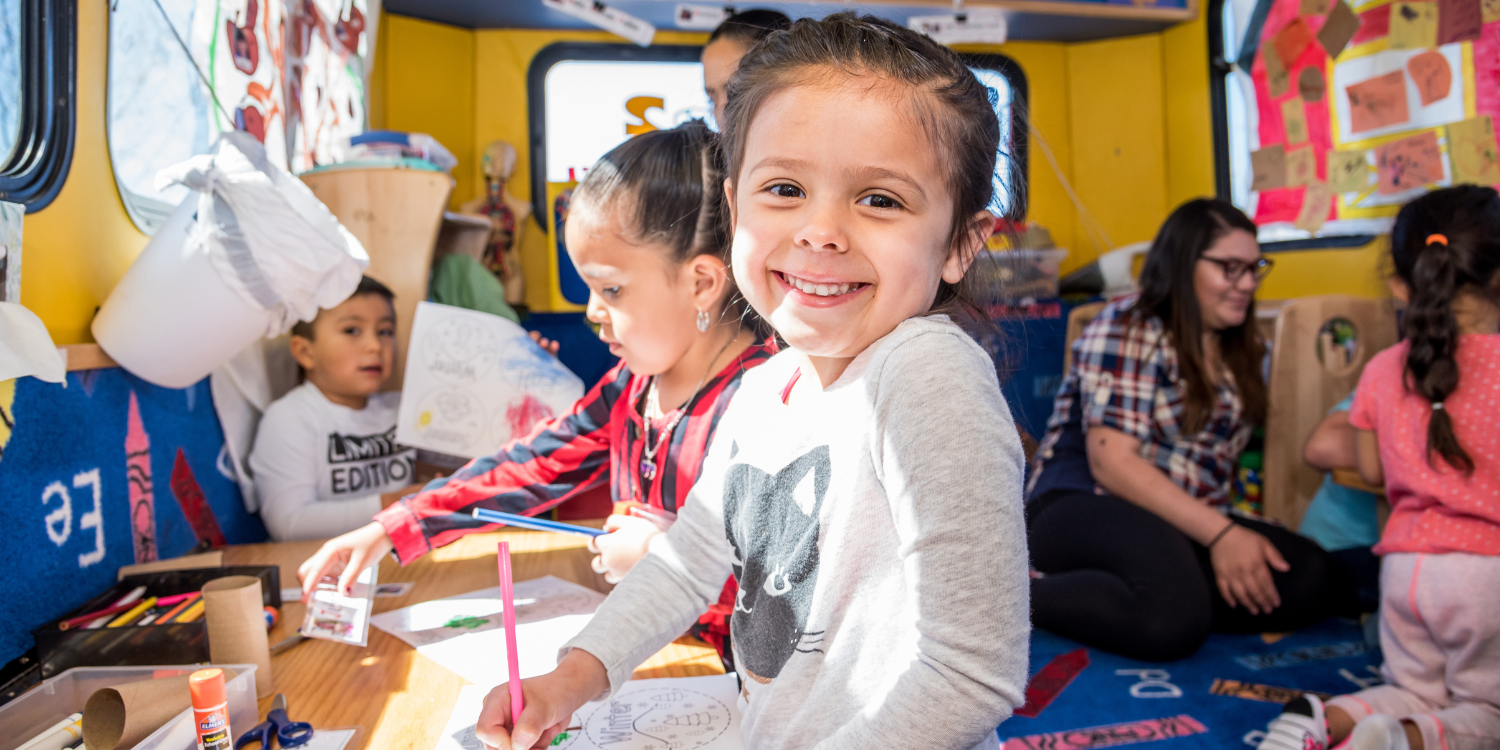
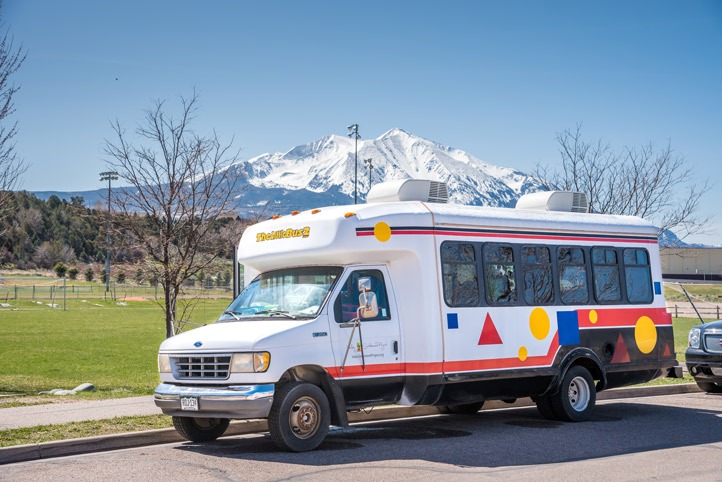
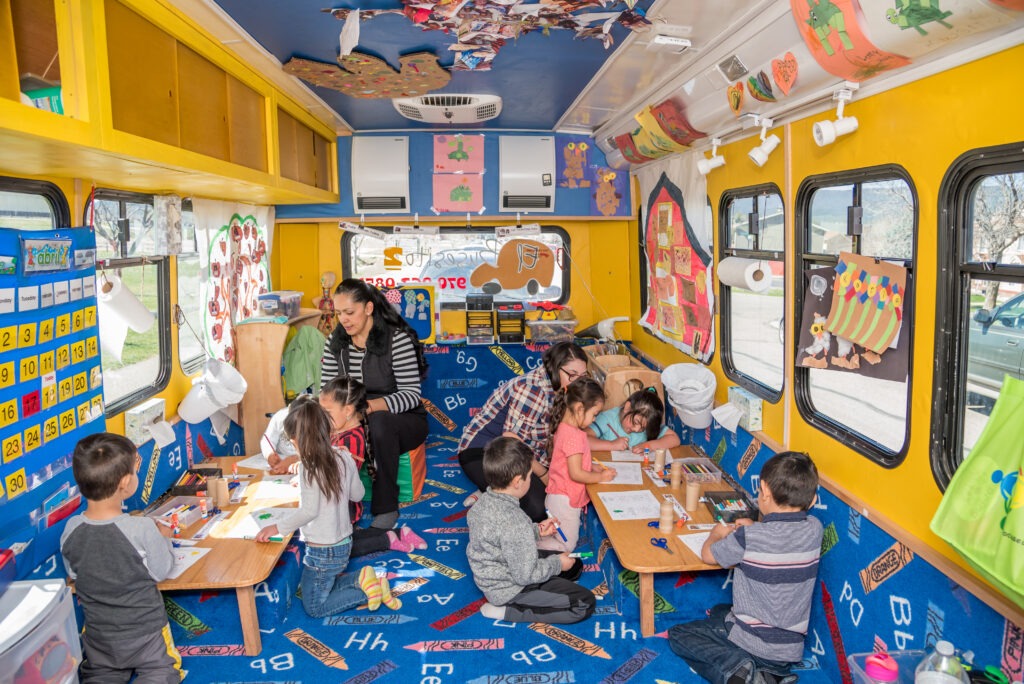
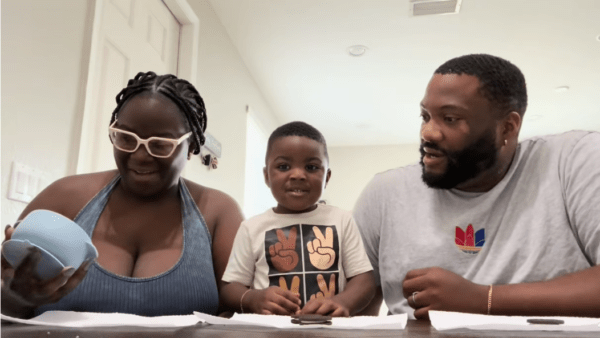

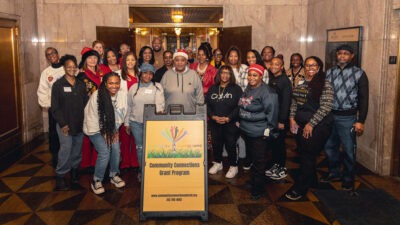
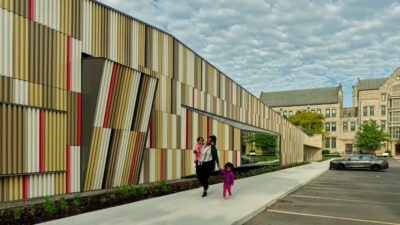
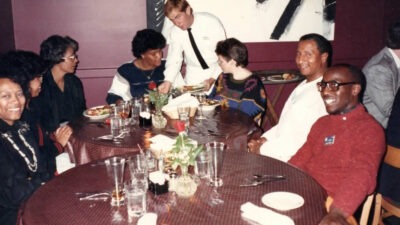

Comments